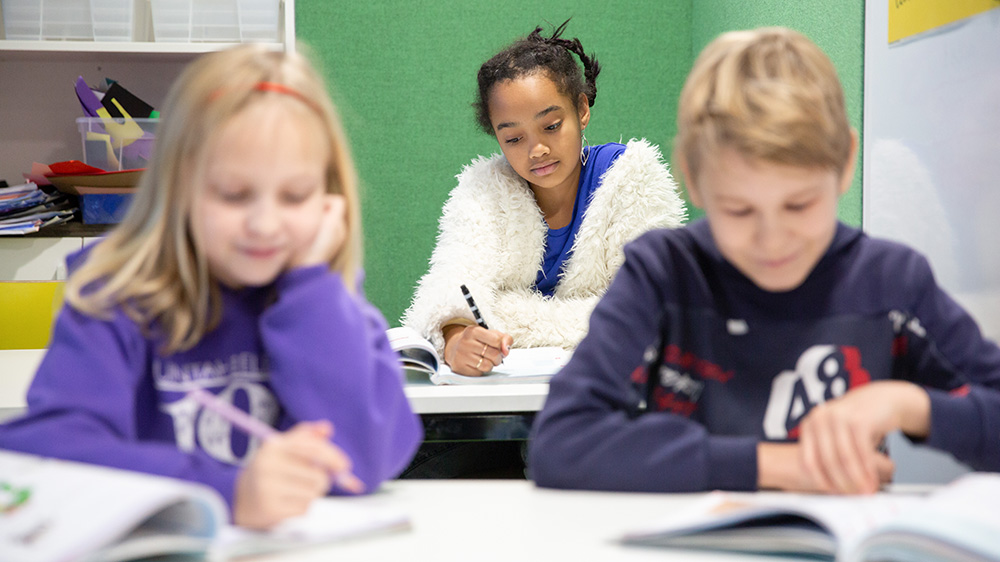Updates to recommendations on hygiene and physical distancing in early childhood education and care, schools, educational institutions and higher education institutions – contact teaching as basic principle in primary and secondary education

The Ministry of Education and Culture and the Finnish Institute for Health and Welfare (THL) have updated their recommendations on how to organise early childhood education and care, primary and lower secondary education, upper secondary education and higher education. The autumn term will start with the same health security practices as before: good hygiene and ventilation will be ensured; unnecessary close contacts will be avoided; and premises will be used in a spacious way, where possible. Those who have symptoms should not attend early childhood education and care or contact teaching. Face masks and coverings should be used as recommended by THL and local authorities. In this way, it is possible to control the risk of infection, i.e. to reduce infections and to minimise the number of people exposed in potential exposure situations.
As a rule, primary and lower secondary education will be organised as contact teaching at the start of this autumn. As before, education providers will decide how they organise contact teaching and distance learning based on a decision under the Communicable Diseases Act.
Exceptional teaching arrangements can be temporarily introduced if the local epidemiological situation so requires. The temporary amendment to the Basic Education Act has been extended for the school year 2021–2022. If contact teaching cannot be organised safely, education providers can decide to introduce exceptional teaching arrangements, if it is necessary for the organisation of teaching on the basis of a decision under the Communicable Diseases Act. Education providers will assess together with the regional authorities responsible for communicable diseases whether contact teaching can be organised safely.
Exceptional teaching arrangements can mean that teaching is organised by alternating between contact teaching and distance learning as deemed appropriate by the education provider. The intention is not to use distance learning more than is necessary to safeguard health. Education providers cannot introduce such arrangements as a precaution.
Education providers have an obligation to organise student welfare services and support for learning and school attendance even when exceptional teaching arrangements are in place. All students are entitled to free school meals even outside contact teaching.
Upper secondary education and higher education
As a rule, upper secondary education, too, will be organised as contact teaching at the start of the autumn. The updated recommendation reminds that everyone must be able to clean their hands when they are in an educational institution. The cleaning of all premises and surfaces must be intensified, and education and training must be organised in a spacious way.
Higher education institutions decide themselves how they organise teaching. Many higher education institutions report that they intend to increase significantly the availability of contact teaching. The Ministry supports their plans. According to the updated recommendation, institutions organising contact teaching must ensure health security by making it possible to avoid close contacts, by creating enough space and by other means as instructed by the authorities.
The temporary exceptions due to the COVID-19 epidemic will remain in force in vocational education and training and in higher education institutions until 31 July 2022.
Grants available for addressing the epidemic’s effects
A call for government grant applications is now open to address the shortfall in learning and wellbeing, caused by the COVID-19 epidemic, in early childhood education and care, pre-primary education, and primary and lower secondary education. The total amount of funding available is EUR 40 million. The call closes on Friday 6 August.
A similar call for government grant applications in general upper secondary education is open until 31 August. The funding available totals EUR 15 million. In addition, EUR 5 million has been allocated to support vocational education and training in autumn 2021.
Recommendations:
- Recommendation from the Finnish Institute for Health and Welfare and the Ministry of Education and Culture to providers of education and early childhood education and care during the COVID-19 epidemic, 5 August 2021 (in Finnish)
- Recommendations of the Finnish Institute for Health and Welfare and the Ministry of Education and Culture to universities, universities of applied sciences and providers of general upper secondary education, vocational education and training, liberal adult education and basic education for adults during the coronavirus epidemic, 5 August 2021 (in Finnish)
Inquiries:
- Heli Nederstöm, Senior Ministerial Adviser (early childhood education and care and primary and lower secondary education), tel. +358 2953 30122
- Petri Lempinen, Director General (vocational education and training, general upper secondary education), tel. +358 2953 30180
- Ilmari Hyvönen, Senior Ministerial Adviser (higher education), tel. +358 2953 30117

